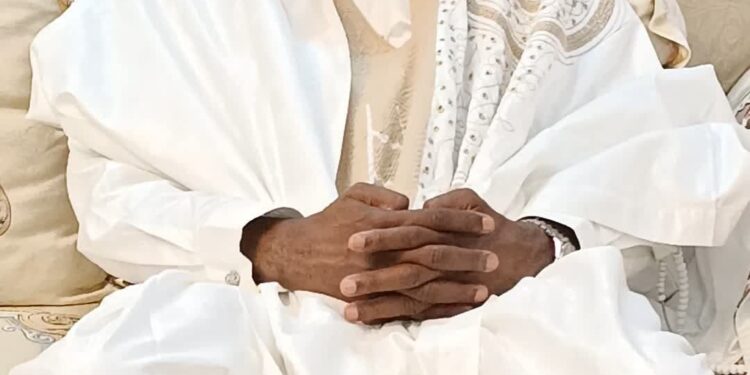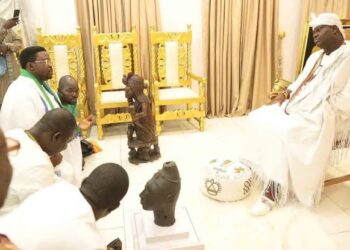
By Ibrahim Kegbegbe
Ilorin, Nigeria – The Mufti Diyar of Ilorin, Al-Sheikh Sulaimon Faruq Onikijipa, popularly known as Al-Miskinu Billahi, has publicly retracted a controversial statement he made years ago regarding wealth acquisition. The statement, which suggested that “whoever wants to become somebody in life needs to chop somebody” and that “one must reject God’s commandments before becoming rich, only to later follow them,” had sparked widespread condemnation among the Nigerian Muslim Ummah.
For years, concerned Muslims and scholars had criticized the cleric for the remarks, deeming them misleading and contrary to Islamic teachings. However, in a sermon delivered on Monday, February 24, 2025, Mufti Diyar finally withdrew his words, admitting that they had been misconstrued and could have led to negative interpretations among the youth.
“I was surprised when I saw people tagging my photo to the murder of Hafsoh, claiming that my past sermon on how to get rich inspired Abdul Rahman Bello to commit such an atrocity,” he stated, referencing a recent tragic incident in Ilorin.
He clarified his position, saying, “I never meant that people should harm others in order to succeed in life. If my past statements have been misunderstood or have inspired any ungodly acts, I sincerely apologize. It was a slip of the tongue, and I seek forgiveness from Almighty Allah.”
The retraction has sparked discussions within the Islamic community, with many scholars commending Mufti Diyar for acknowledging his error and seeking forgiveness. Some believe that his willingness to clarify and retract his words demonstrates a strong moral character, while others stress the need for caution when delivering religious messages to ensure they are not misinterpreted.
An Islamic scholar based in Ibadan, Sheikh Sulaimon Kegbegbe, noted, “This is a reminder that religious leaders must choose their words carefully. The influence they wield is significant, and a single misstatement can have lasting consequences.”
The incident has reignited conversations on the responsibility of religious leaders in shaping societal values and guiding their followers with messages that align with ethical and religious principles.

















